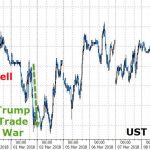Should we care about inequality? Interventionists and egalitarians of all stripes would answer with a resounding “yes.” They argue that, in the words of former president Obama, inequality is “the defining challenge of our time,” and their criticisms of high and growing inequality such as Occupy Wall Street’s protests against the (symbolic) “1%,” Piketty’s Capital in the Twenty-First Century, or the annual Oxfam report on wealth inequality manage to draw a lot of public attention.
Conversely, free-market advocates and proponents of capitalism appear to often categorically reject the notion, as illustrated by Daniel Lacalle’s recent Mises Wire article. Instead of focusing on inequality trends, Lacalle and others argue, we should focus on the achievements of capitalism with regard to the staggering increase in (material) living standards across the globe, and not worry too much that growth has not been evenly distributed. Inequality is seen as a natural outcome of the market process and economic development, provides positive economic incentives, and rewards individuals according to their efforts and services rendered to society at large. Public and political focus on inequality just serves as justification for continued interventionism, which is threatened by steady retreat of absolute poverty across the world. To quote Lacalle: “If the world eradicates poverty, the bureaucrat’s job is gone.”
Inequality, however, is a complex phenomenon, encompassing wealth and income as well as within — and between — country inequality, not all of which move in the same direction (global income inequality, for example, is now falling). More importantly, it is important to analyze what causes inequality. Whether inequality is good, bad, or indifferent is ultimately a moral judgment.1 It is here that the free-market position would benefit from a more nuanced analysis.












Leave A Comment